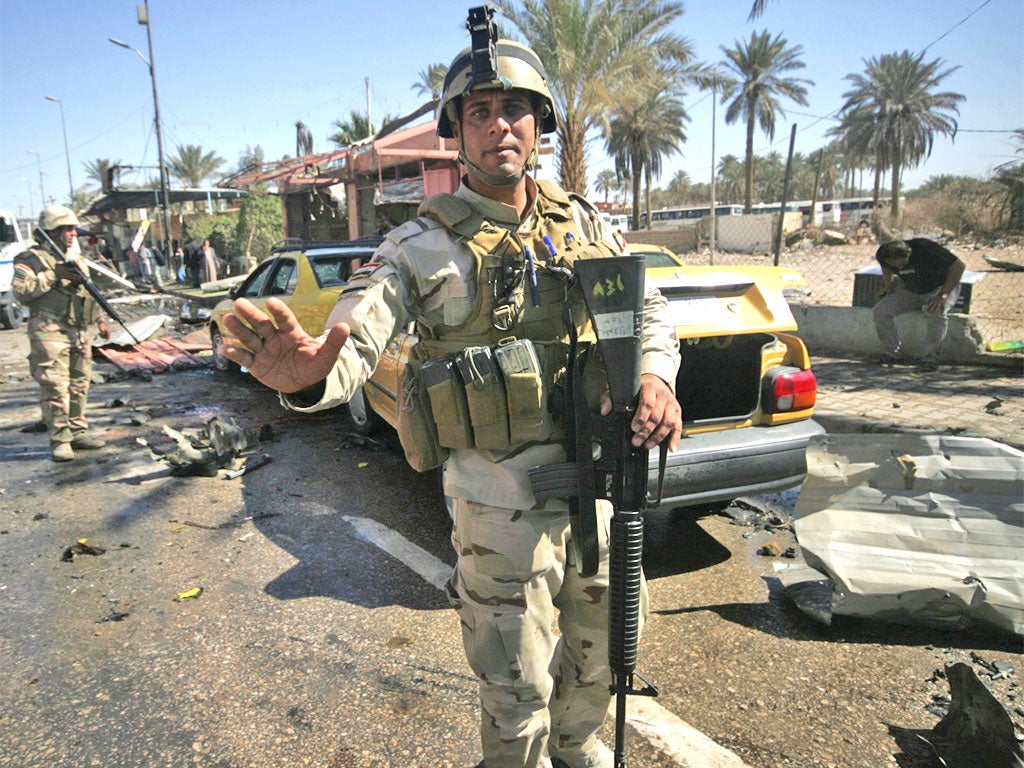Dozens die in bomb explosions across Iraq

At least 26 explosions struck cities and towns across Iraq yesterday, killing 49 people and wounding more than 200. The blasts came despite a massive security clampdown ahead of next week's Arab League summit in Baghdad.
It was Iraq's bloodiest day in nearly a month and the breadth of co-ordinated bombs in more than a dozen cities showed an apparent determination by insurgents to prove that the government cannot keep the country safe
Iraq is due to host the summit for the first time in 20 years and the government is anxious to show it can maintain security following the withdrawal of US troops in December.
"The goal of today's attacks was to present a negative image of the security situation in Iraq," Ali al-Dabbagh, a government spokesman, said. "Security efforts will be escalated to counteract terrorist groups' attacks and to fill loopholes used by them to infiltrate security, whether in Baghdad or other provinces."
Yesterday's deadliest incident occurred in the southern Shia Muslim holy city of Kerbala, where twin explosions killed 13 people and wounded 48 during the morning rush hour.
Blasts also struck in the capital, in Baiji, Baquba, Daquq, Dibis, Dhuluiya, Kirkuk, Mosul, Samarra and Tuz Khurmato to the north, in Falluja and Ramadi to the west, and Hilla, Latifiya, Mahmudiya and Mussayab to the south. Police defused bombs in Baquba, Falluja and Mosul.
Most of the blasts were aimed at police checkpoints and patrols, which remain frequent targets. On 23 February, dozens of explosions across the country killed at least 60 people. Sunni Muslim insurgent groups say that despite the withdrawal of US forces, they will not lay down arms and will continue to battle the Shia-led government.
Although overall violence has declined since the height of sectarian fighting in 2006 and 2007, Iraqis worry whether their government has the wherewithal to impose security.
Reuters
Subscribe to Independent Premium to bookmark this article
Want to bookmark your favourite articles and stories to read or reference later? Start your Independent Premium subscription today.

Join our commenting forum
Join thought-provoking conversations, follow other Independent readers and see their replies